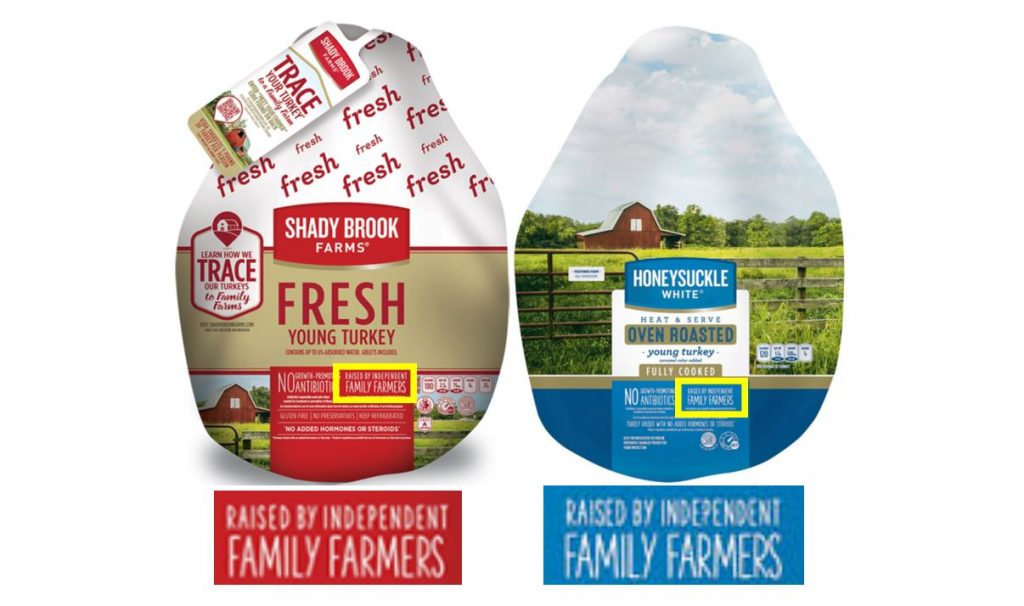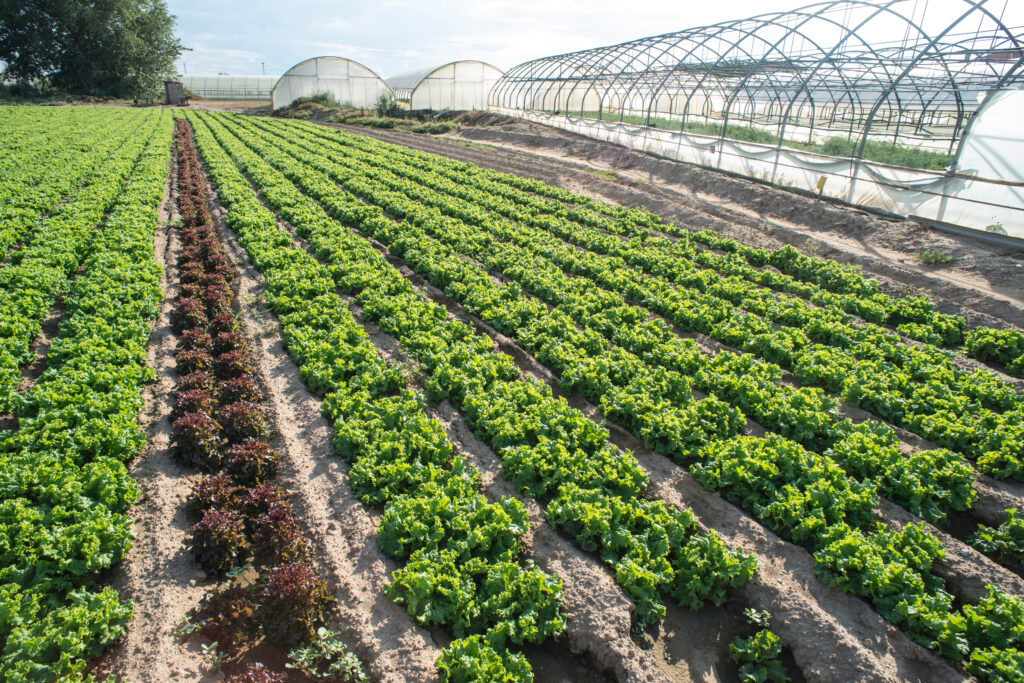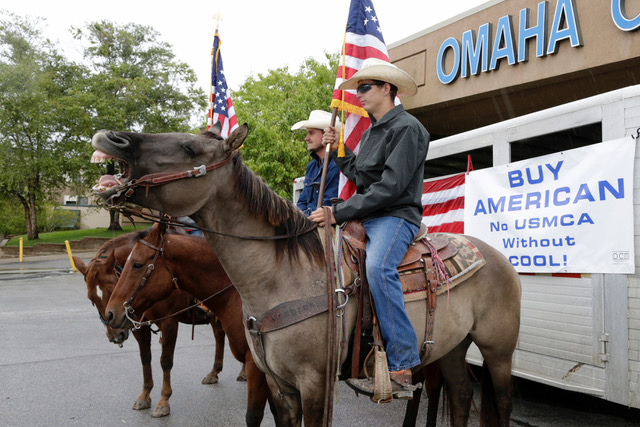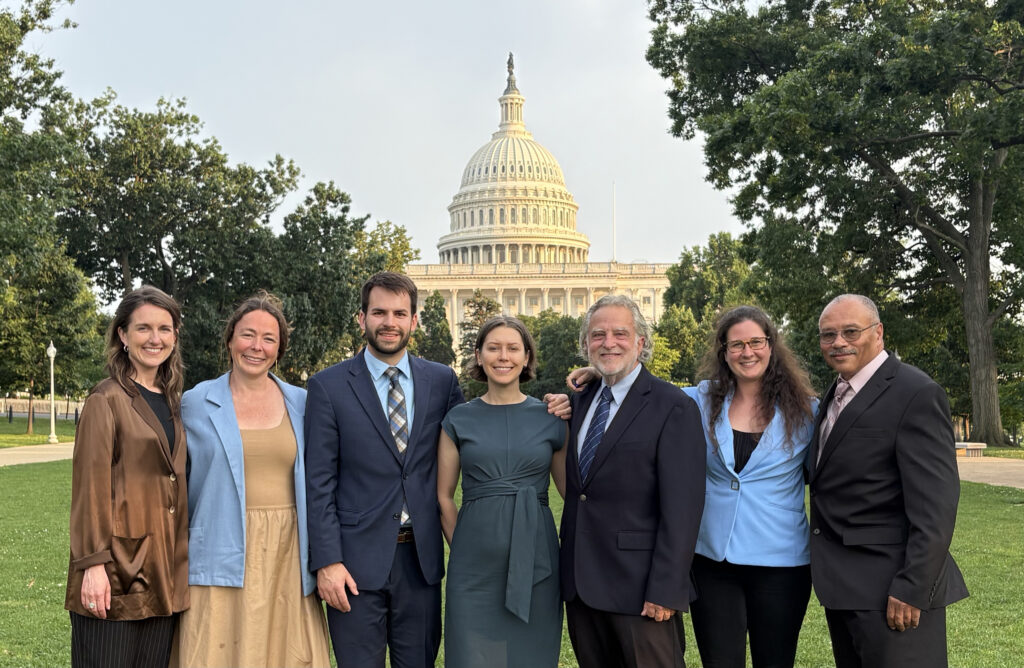Today, Family Farm Action Alliance, Venceremos, Mighty Earth, Animal Equality, Organic Consumers Association, and Socially Responsible Agricultural Project, in partnership with Richman Law Group, filed a complaint with the Federal Trade Commission (FTC). The groups request an FTC investigation of Cargill, Inc. for making false and misleading claims about its turkey products sold under the Shady Brook Farms and Honeysuckle White brands.
Cargill has widely marketed and labeled these brand products as being raised by “independent family farmers.” These labeling practices imply benefits for workers, animals and the environment, when in fact, the turkeys produced for these two brands come from large, corporate-controlled factory farms.
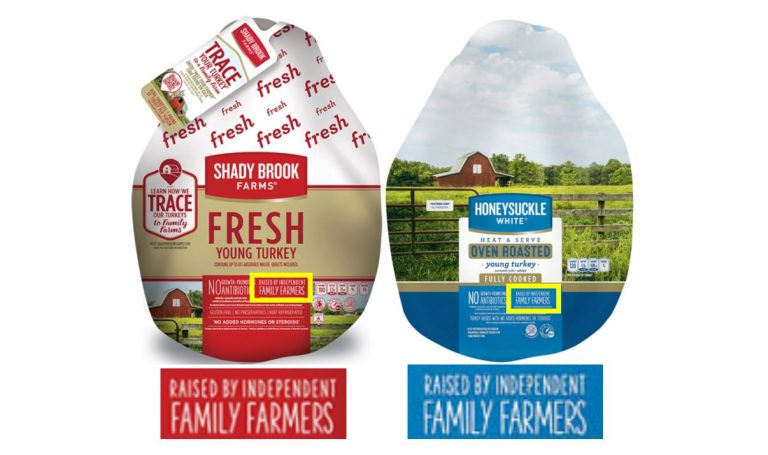
Sign the petition: Tell the FTC to stop Cargill’s corrupt food label fraud
Family Farm Action Alliance V.P. of Programs and Development Angela Huffman said: “Cargill is the largest privately-held company in America, and it wields its corporate power to abuse contract turkey growers and slaughterhouse workers, animals, and the land. Cargill’s advertising pulls the wool over consumers’ eyes while stealing the market from independent family farmers. Our complaint calls on FTC to order Cargill to end this charade.”
Independent turkey farmer Greg Gunthorp said: “With the heavy consolidation in the food and agriculture markets, it is hard enough to stay in business today. When a corporate monopoly steals my identity as an independent family farmer, there is simply no market left for my business. These deceptive labeling practices have to be stopped.”
Examples of Cargill’s deceptive marketing regime:
- On its website, social media accounts, and Sustainability Reports, Cargill consistently advertises its “independent family farmer” narrative. Contrary to this narrative, Cargill’s turkey growers have little to no freedom to make decisions about how they farm and are routinely subject to exploitative demands to incur more and more debt to pay for costly equipment and barn upgrades.
- Contrary to Cargill’s claims that it “provide[s] a safe workplace,” its employees routinely suffer severe injuries at its facilities. This exploitation is made all the more evident in light of the COVID-19 pandemic.
- Contrary to Cargill’s representations that its turkeys are afforded “humane treatment” and allowed “the expression of natural behaviors,” Cargill’s turkeys are kept in intensive, unsanitary confinement where they are systematically mutilated and selectively bred to have debilitating health problems.
- Finally, contrary to Cargill’s representations that it delivers “sustainable” products, it is consistently ranked as one of the largest polluters of air and waterways in the country.
Key findings:
- Federal law requires that marketers must ensure that all reasonable interpretations of their claims are truthful, not misleading, and supported by a reasonable basis before they make the claims.
- Consumers believe that food from “independent family farms” does not come from large-scale, corporate-controlled farms. They further believe that “family farmer” claims such as those made by Cargill imply numerous benefits for workers, animals, and the environment.
- Cargill exercises total control over virtually all aspects of the farming and production process: from the breeds of turkeys used, the feed they are provided, the drugs they are administered, and the number of turkeys in each barn. Cargill’s contract farmers do not even own the turkeys—Cargill does. This type of control is known as a vertically integrated production system.
- The Small Business Administration Office of Inspector General has declared production systems like Cargill’s to not be independent.
Media Contact: Angela Huffman, [email protected]

